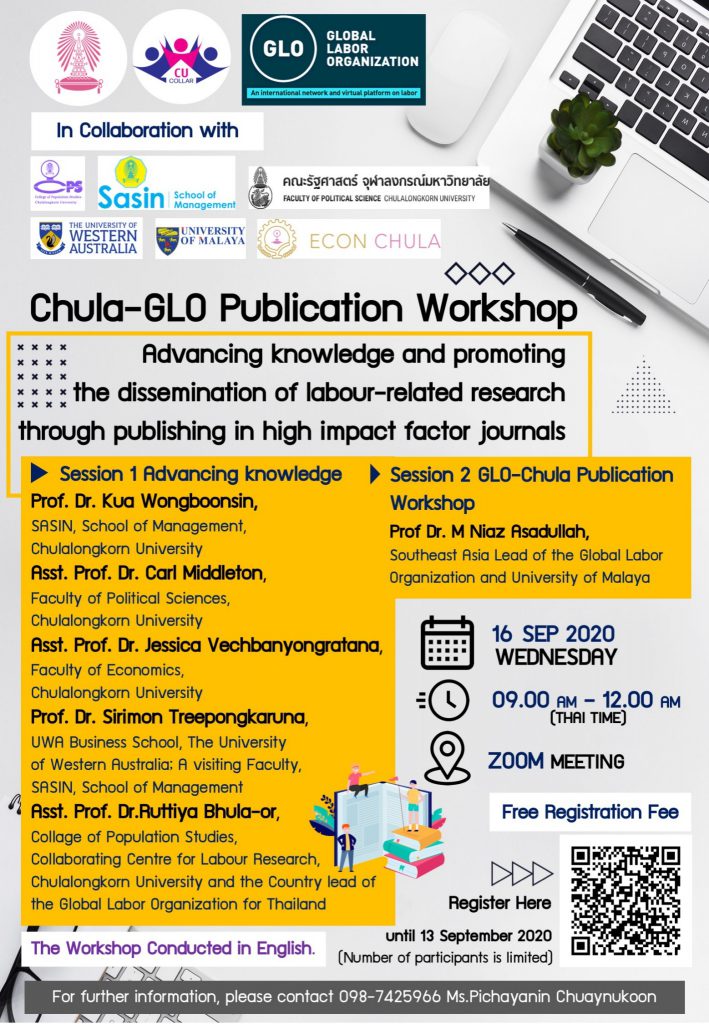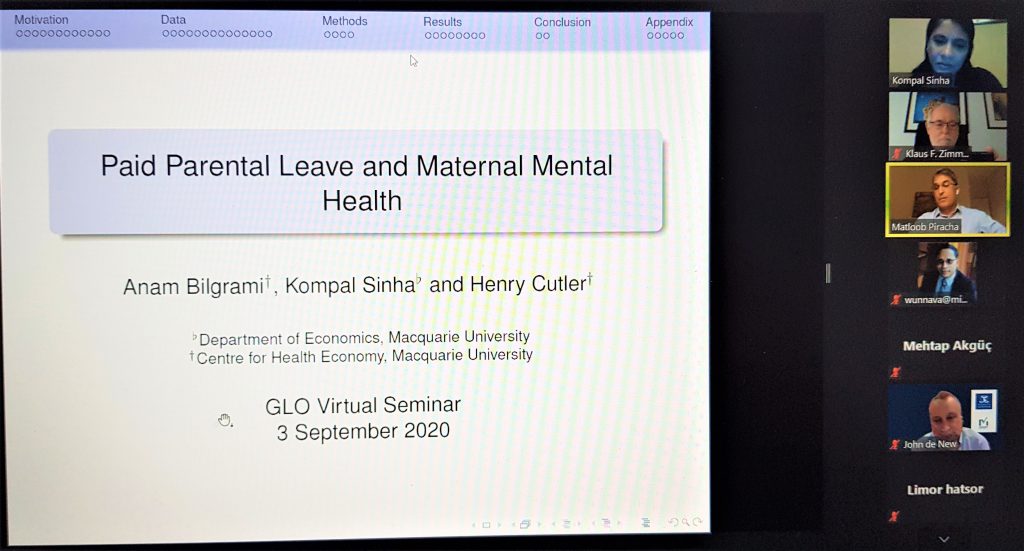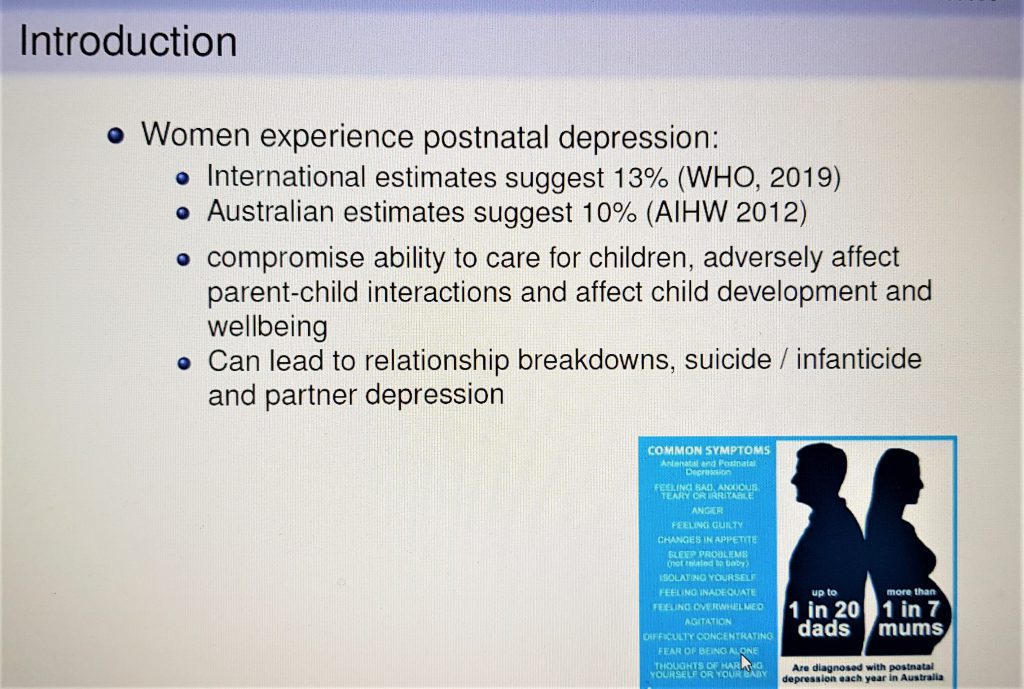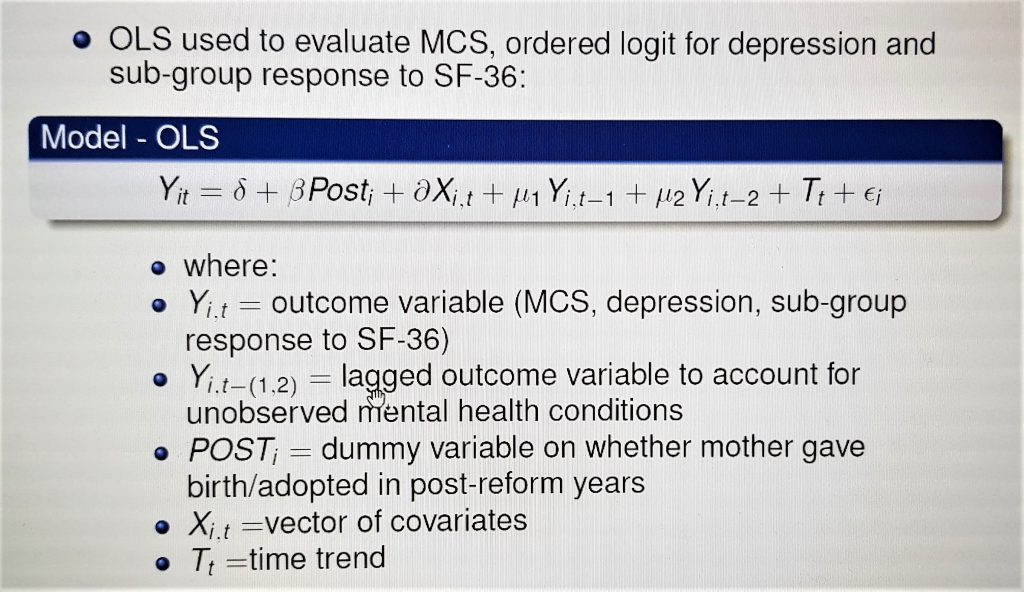The GLO Discussion Paper of the Month of August demonstrates how to use administrative data to estimate the number of deaths, the number of infections, and mortality rates from Covid-19 in Lombardia, the hot spot of the disease in Italy and Europe.
GLO Discussion Papers are research and policy papers of the GLO Network which are widely circulated to encourage discussion. Provided in cooperation with EconStor, a service of the ZBW – Leibniz Information Centre for Economics, GLO Discussion Papers are among others listed in RePEc (see IDEAS, EconPapers). Complete list of all GLO DPs downloadable for free.
GLO Discussion Paper of the Month: August
630 True Covid-19 mortality rates from administrative data – Download PDF
by Depalo, Domenico
Forthcoming: Journal of Population Economics
GLO Fellow Domenico Depalo

Author Abstract: In this paper I use administrative data to estimate the number of deaths, the number of infections, and mortality rates from Covid-19 in Lombardia, the hot spot of the disease in Italy and Europe. The information is relevant for the policy maker, to make decisions, and for the public, to adopt appropriate behaviors. As the available data suffer from sample selection bias I use partial identification to derive these quantities. Partial identification combines assumptions with the data to deliver a set of admissible values, or bounds. Stronger assumptions yield stronger conclusions, but decrease the credibility of the inference. Therefore, I start with assumptions that are always satisfied, then I impose increasingly more restrictive assumptions. Using my preferred bounds, during March 2020 in Lombardia there were between 10,000 and 18,500 more deaths than before 2020. The narrowest bounds of mortality rates from Covid-19 are between 0.1% and 7.5%, much smaller than the 17.5% discussed for long time. This finding suggests that the case of Lombardia may not be as special as some argue.
More from the GLO Coronavirus Cluster
GLO Discussion Papers submitted in August 2020
645 Collateral Damage? Labour Market Effects of Competing with China – at Home and Abroad – Download PDF
by Cabral, Sónia & Martins, Pedro S. & Pereira dos Santos, João & Tavares, Mariana
644 Suffering and prejudice: Do negative emotions predict immigration concerns? – Download PDF
by Deole, Sumit S. & Huang, Yue
643 Self-Selection in Physical and Mental Health among Older Intra-European Migrants – Download PDF
by Constant, Amelie F. & Milewski, Nadja
642 Entrepreneurship Education and Teacher Training in Rwanda – Download PDF
by Blimpo, Moussa P. Pugatch, Todd
641 Schooling Forsaken: Education and Migration – Download PDF
by Abdulloev, Ilhom & Epstein, Gil S. & Gang, Ira N.
640 The Economics of Happiness – Download PDF
by Nikolova, Milena & Graham, Carol
639 In Times of Trouble: Innovative Drivers of External Competitiveness for Small Businesses during the Great Recession – Download PDF
by Brancati, Emanuele & Brancati, Raffaele & Guarascio, Dario & Zanfei, Antonello
638 Trade Liberalization and the Gender Employment Gap in China – Download PDF
by Wang, Feicheng & Kis-Katos, Krisztina & Zhou, Minghai
637 The intensity of COVID-19 Non-Pharmaceutical Interventions and labor market outcomes in the public sector – Download PDF
by Marcén, Miriam & Morales, Marina
636 To abate, or not to abate? A strategic approach on green production in Cournot and Bertrand duopolies – Download PDF
by Buccella, Domenico & Fanti, Luciano & Gori, Luca
635 Short-term Labour Market Effects of COVID-19 and the Associated National Lockdown in Australia: Evidence from Longitudinal Labour Force Survey – Download PDF
by Guven, Cahit & Sotirakopoulos, Panagiotis & Ulker, Aydogan
634 Big Data and Happiness – Download PDF
by Rossouw, Stephanie & Greyling, Talita
633 Contract structure, time preference, and technology adoption – Download PDF
by Chowdhury, Shyamal & Smits, Joeri & Sun, Qigang
632 Artificial Intelligence, Income Distribution and Economic Growth – Download PDF
by Gries, Thomas & Naudé, Wim
631 Entrepreneurial Recovery from COVID-19: Decentralization, Democratization, Demand, Distribution, and Demography – Download PDF
by Naudé, Wim
630 True Covid-19 mortality rates from administrative data – Download PDF
by Depalo, Domenico
629 Firm behavior during an epidemic – Download PDF
by Brotherhood, Luiz & Jerbashian, Vahagn
628 Conscription and Educational Outcomes: Quasi-Experimental Evidence from the Republic of Cyprus – Download PDF
by Savčić, Ružica & Theodoropoulos, Nikolaos & Xefteris, Dimitrios
627 Sexual Orientation, Gender Identity and Labour Market Outcomes: New Patterns and Insights – Download PDF
by Drydakis, Nick & Zimmermann, Klaus F.
626 COVID-19 Outbreak, Social Response, and Early Economic Effects: A Global VAR Analysis of Cross-Country Interdependencies – Download PDF
by Milani, Fabio
625 Feeling Richer and Happier? Self-Perceived Economic Welfare and Life Satisfaction: Evidence of ‘Easterlin Paradox’ from Russian Longitudinal Data – Download PDF
by Jin, Olivia S. & Wunnava, Phanindra V.
624 Jobs Cronyism in Public-Sector Firms – Download PDF
by Martins, Pedro S.
GLO DP Team
Senior Editors: Matloob Piracha (University of Kent) & GLO; Klaus F. Zimmermann (UNU-MERIT, Maastricht University and Bonn University).
Managing Editor: Magdalena Ulceluse, University of Groningen. DP@glabor.org
 DP of the Month August
DP of the Month August
Ends;




















